For now, the coaching carousel has stopped. There may not have been the massive shifts we saw last year (when Lincoln Riley and Brian Kelly uprooted), but this part of the season was still quite silly. Any one of these coaches could see success or failure for a variety of reasons, and grading hires can be a moving target. However, there are common threads between every new hire this year, and that gives us tiers we can use to classify this year’s coaching cycle.
Interims or internal promotion tier
- Zach Arnett, Mississippi State
- Brent Key, Georgia Tech
- Brian Newberry, Navy
As with any interim promotion, there’s something to be said for continuity. For Mississippi State’s, it’s easy to see why the program would want that. They’ve been through something truly traumatic over the last week and a half with the death of Mike Leach, and Arnett’s taking over the permanent job makes sense for that reason alone. Add in that the Bulldogs delayed their athletic director search until after the holidays and the early signing period wasn’t going to wait, and it created a situation where it’s easy to see why Arnett just got the permanent gig.
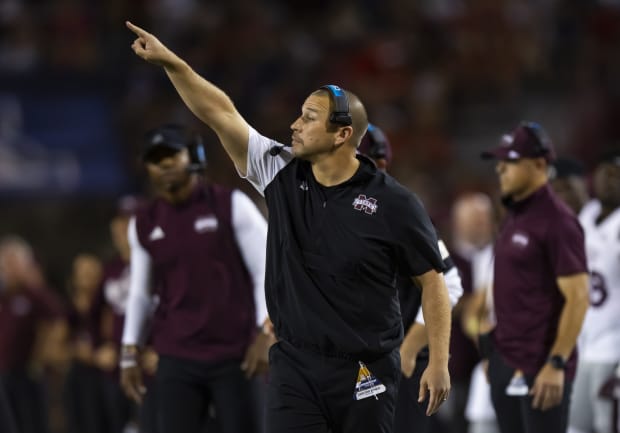
Mark J. Rebilas/USA TODAY Sports
Georgia Tech’s situation was a bit more complex. Although Tech brass clearly kicked the tires on interested parties, Key had an inside track due to influential boosters being in his corner (he played for the Jackets in the late 1990s). The team did noticeably improve almost immediately when Key took over, before finishing 4–4 during Key’s interim run. In the end, new athletic director J Batt made the calculation that keeping Key was the best thing for business as Tech admins work to improve fundraising efforts to get him the resources he needs.
Hotshot offensive coordinators/offense tier
- Eric Morris, North Texas
- Alex Goelesh, USF
- GJ Kinne, Texas State
- Kenny Dillingham, Arizona State
- Jamey Chadwell, Liberty
- Tim Beck, Coastal Carolina
A well-trodden place to pull a coach from is the coordinator level. In today’s CFB, that means offensive coordinators specifically. Morris, Goelesh and Kinne all come from pass-happy schemes with some direct (Morris) and indirect (Kinne, Goelesh via Josh Heupel) connections to Mike Leach’s Air Raid offense.
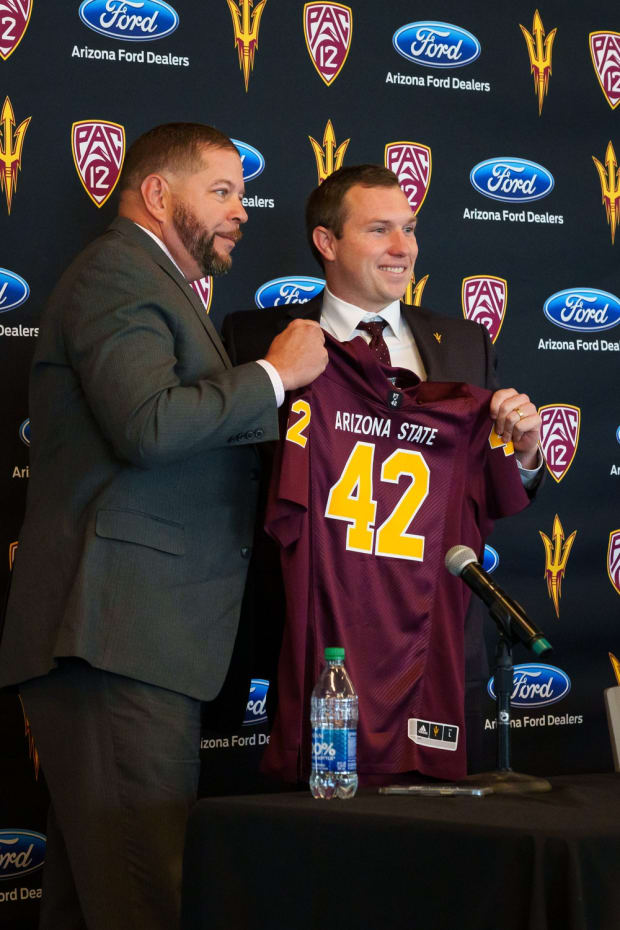
Megan Mendoza/USA TODAY NETWORK
Dillingham comes directly from Oregon to coach his alma mater after getting the best out of Bo Nix en route to an high-wattage offensive output and Chadwell’s iteration of the bones of an old school triple option make his scheme unique. Tim Beck’s offense may have been a bit more conventional, and how he replaces Chadwell will be fascinating as Coastal looks to form a new identity.
The FCS ascender tier
- Troy Taylor, Stanford
It is rare that a coach goes from FCS to Power 5, but it has happened before and now has happened again with Troy Taylor going from Sacramento State to Stanford. How he will do will be based largely on if Stanford can relax some of its entry requirements, especially around players transferring in. Former head coach David Shaw had made that a top priority recently before stepping down.
Minority hires
- Kenni Burns, Kent State
- Ryan Walters, Purdue
- Lance Taylor, Western Michigan
This coaching cycle continues the trend of a troubling lack of people of color being hired for coaching jobs. Three Black coaches were fired this cycle, another stepped down and a Latino coach also fired. Burns and Walters are two of the three Black coaches hired this cycle. Walters comes from Illinois after leading one of the country’s best defenses (he was also in talks for Colorado for its vacancy). Burns was hired off of PJ Fleck’s Minnesota staff, and has been with him going back to 2016 at Western Michigan.
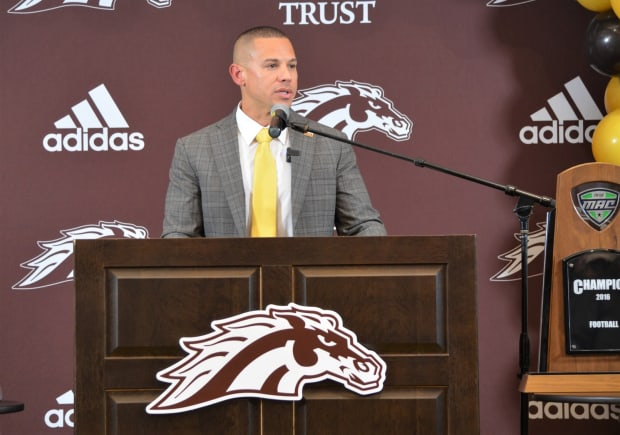
Bill Broderick/The Battle Creek Enquirer/USA TODAY NETWORK
Purdue and Kent State have relatively solid recent histories hiring Black coaches. The Golden Flashes hired Darell Hazell in 2010, then Paul Haynes in ’13, going for back-to-back Black coaches, which is even rarer than an FBS program hiring a Black coach at all. Hazell left because he was hired by Purdue, which hired Walters after losing Jeff Brohm to Louisville (more on Brohm in a bit).
Taylor has a proud Indigenous heritage, as his father James is from the MOWA Choctaw tribe. In 2022, he told the Louisville Courier Journal this when asked about passing his heritage down to his children:
"It's always important to know where you come from,” Lance Taylor said. “I think it's our job as parents to show them their history and some of the cultural things that we grew up in, but it's up to them whether they want to embrace that ... or pass that on to their children or not.”
The Deion Sanders (kinda) tier
- Deion Sanders, Colorado
- Trent Dilfer, UAB
There are plenty of reasons why Deion Sanders is one-of-one as a college football head coach. There is no doubt that his singular force of personality makes him stand apart from potentially any college football head coach ever, but there are a few ways he and Dilfer are a lot alike.
First, the obvious: they’re both former NFL players and Super Bowl champions without much conventional coaching experience. Sanders had stints at multiple high schools, while Dilfer coached at Lipscomb Academy for four seasons. They also had some interface with the recruiting world—if only for a bit. Sanders coached the Under Armour All-American game while Dilfer tutored QBs at the Elite 11 signal-caller showcase. It does not guarantee either success, but their backgrounds have parallels as they both take over FBS jobs.
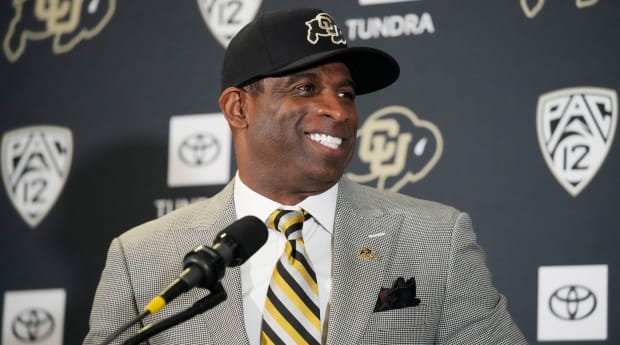
AP Photo/David Zalubowski
The retread tier
- Barry Odom, UNLV
- Kevin Wilson, Tulsa
- Tom Herman, FAU
- Hugh Freeze, Auburn
- Matt Rhule, Nebraska
There can be compelling reasons for a retread coaching hire in today’s college football. With the game’s landscape rapidly changing with the NIL to the transfer portal, there is something to be said for a coach who has done it all before. Especially at the G5 level, it’s easy to see why you’d opt for someone experienced. UNLV, Tulsa and FAU certainly did that. But Auburn and Nebraska gave Rhule and Freeze a second go of it after both coaches had been in the wilderness away from Power 5 coaching to different degrees. Rhule spent time flopping in the NFL, while Freeze was fired in disgrace from Ole Miss before having an up-and-down run at Liberty. Now all five form a decidedly retread tier in the 2022–23 cycle.
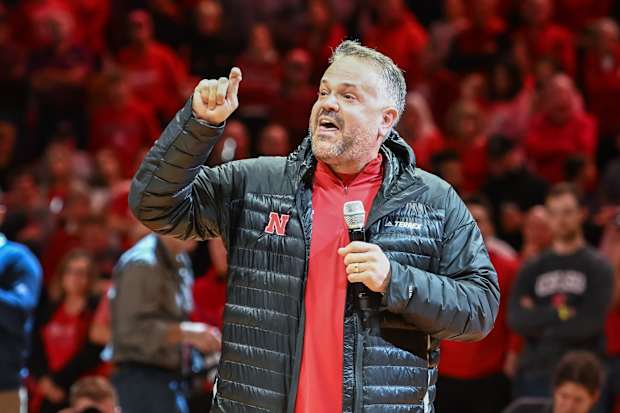
Steven Branscombe/USA TODAY Sports
The shocker tier
- Luke Fickell, Wisconsin
- Biff Poggi, Charlotte
While it may not have made front-page news, Poggie’s hire is a coup for the 49ers, and Poggi had other suitors in this coaching cycle as well as last year’s. But Poggi brings the 49ers a different access point to fundraising beyond what he can do on the field. Previous coach Will Healy’s chief mandate and biggest skill was raising awareness of the program in the community, especially one with as much institutional wealth as the city of Charlotte has as one of the south’s banking centers. Poggi will do similar work as a former hedge fund head.
Luke Fickell flirting with jobs has been well documented—from West Virginia to Michigan State—but the Wisconsin hire came seemingly completely out of left field seemingly from Fickell’s end. The fact that he got the job at all came as a shock in the industry, especially because it seemed like interim Jim Leonhard was going to get the permanent job. But from day one, Wisconsin brass didn’t hesitate to do due diligence on the coaching market, and they ended it by making a seismic tremor in the market when they hired Fickell from Cincinnati. Replacing him at Cincinnati brings us to …
The fresh start tier
- Scott Satterfield, Louisville
It was no secret that Satterfield’s job security was not exactly Nick Saban strong. He had a dalliance with South Carolina a few years ago that forced a public apology to the fanbase, and even this season he was reportedly coaching for his job at one point. When Fickell left, he got the opportunity to hit the reset button at a new stop and Louisville didn’t have to actually weigh the decision to retain him in the future if things ended up breaking bad with the Cardinals on the field. They even got some buyout cash in the process to put toward their news coach, which brings us to …
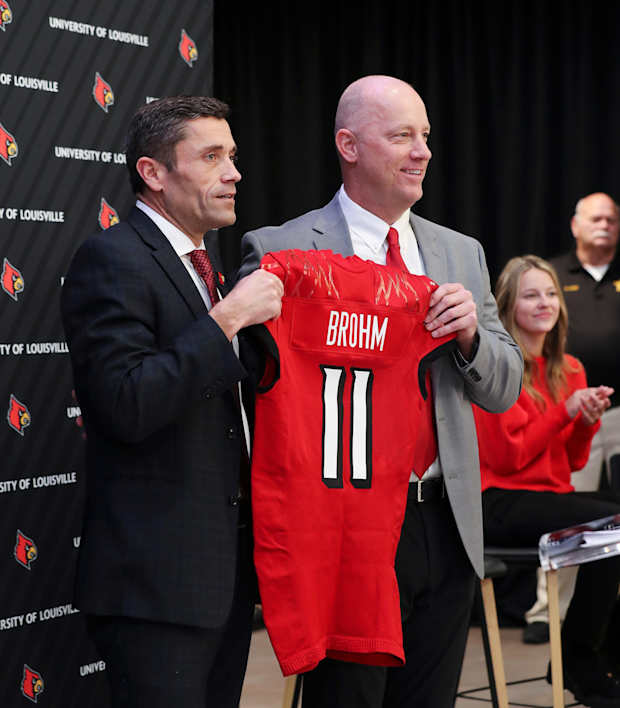
Sam Upshaw Jr./Courier Journal/USA TODAY NETWORK
The Mama called tier
- Jeff Brohm, Louisville
Alabama legend Bear Bryant was once asked why he left Texas A&M for Alabama in 1958. He said “Mama called, and when Mama calls, then you just have to come running.”
In Jeff Brohm’s case, that might have literally been the case. Brohm and his family are legends in that part of the Commonwealth of Kentucky. His father, Oscar, played for the Cards and coaches high school football in the area. All three Brohm sons, including Jeff, played for Louisville as well. So their mother Donna likely didn’t actually pick up the phone to do some persuasion, but it certainly wouldn’t be out of the realm of possibility to think she did … but then again, Jeff may not have needed much persuasion from her anyway given his Louisville bonafides.







